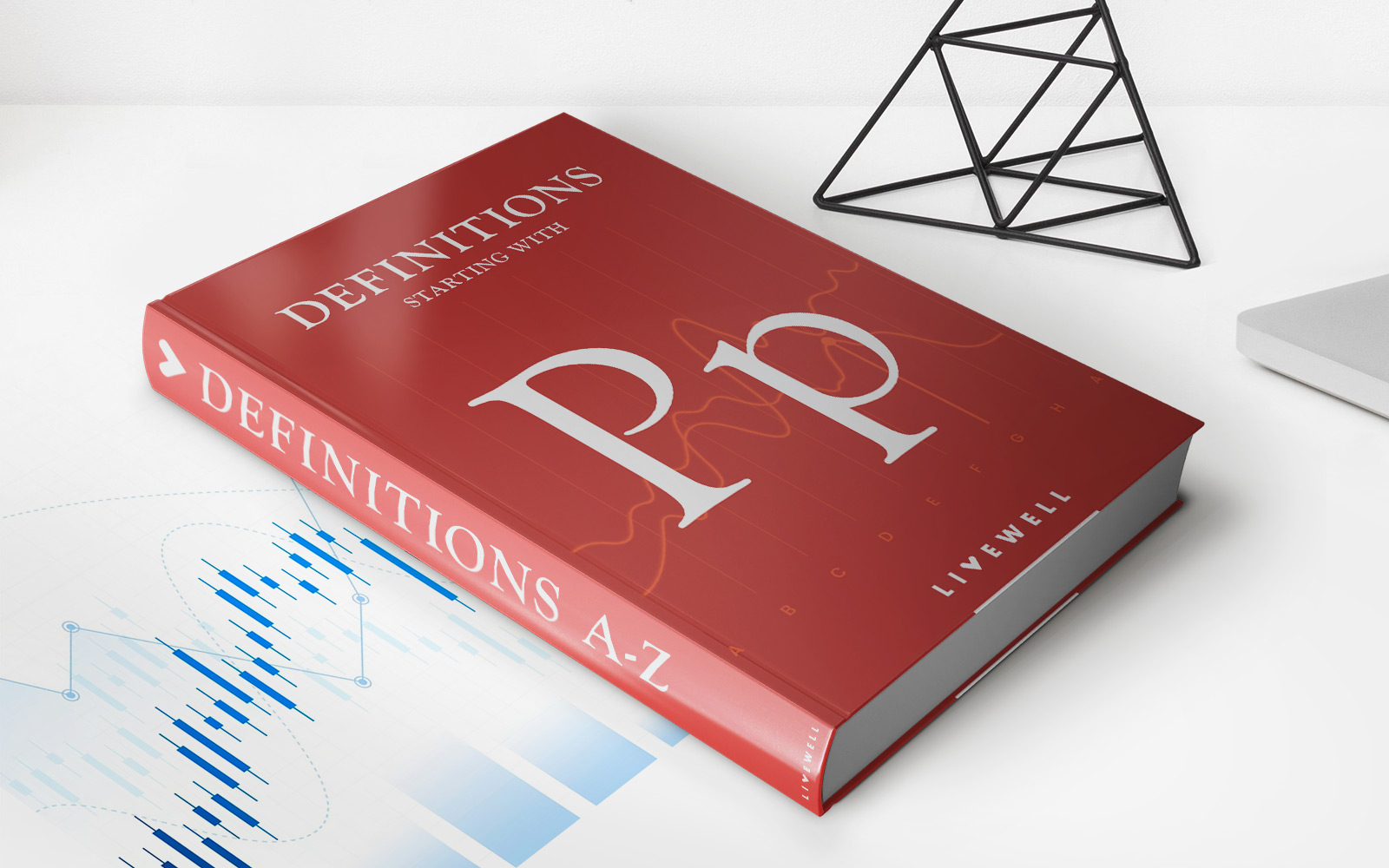Home>Finance>What Happens To Life Insurance When The Beneficiary Dies?


Finance
What Happens To Life Insurance When The Beneficiary Dies?
Modified: February 21, 2024
Find out what happens to life insurance when the beneficiary passes away and how it impacts your financial future. Protect your finances with our expert advice.
(Many of the links in this article redirect to a specific reviewed product. Your purchase of these products through affiliate links helps to generate commission for LiveWell, at no extra cost. Learn more)
Table of Contents
- Introduction
- Understanding Life Insurance Beneficiaries
- What Happens to Life Insurance Proceeds after the Beneficiary’s Death?
- Contingent Beneficiaries: An Essential Component
- The Importance of Regularly Updating Beneficiary Designations
- Probate and Life Insurance
- Estate Planning Considerations for Life Insurance Beneficiaries
- Settlement Options for Life Insurance Proceeds
- Tax Implications for Life Insurance Beneficiaries
- Common Questions about Life Insurance Beneficiaries
- Conclusion
Introduction
Life insurance is a crucial financial tool that provides financial security and protection for individuals and their loved ones in the event of their passing. When an individual purchases a life insurance policy, they typically designate one or multiple beneficiaries to receive the policy’s proceeds upon their death.
However, what happens when a life insurance beneficiary dies before, or shortly after, the insured passes away? It is a common question that arises and requires clarity to ensure the proper distribution of the policy proceeds.
In this article, we will explore the topic of what happens to life insurance when the beneficiary dies. We will delve into the various considerations and scenarios that may arise, and provide insights into the steps that need to be taken to ensure a smooth and appropriate handling of the life insurance policy.
Understanding the complexities of life insurance beneficiaries and their subsequent beneficiaries is essential in navigating the intricacies of life insurance policies and their distribution. By gaining a comprehensive understanding of the options available and the implications involved, individuals can make informed decisions to protect their loved ones’ financial well-being.
Understanding Life Insurance Beneficiaries
Before diving into the details of what happens when a life insurance beneficiary dies, it is important to understand the role of beneficiaries in life insurance policies.
A life insurance beneficiary is the individual or entity that the policyholder designates to receive the death benefit upon their passing. The beneficiary can be a spouse, child, family member, friend, or even a charitable organization. The policyholder can name one or multiple primary beneficiaries.
It is important to note that the policyholder retains the right to change the beneficiary designation at any time during their lifetime, provided they have the necessary legal capacity. This flexibility ensures that the policyholder can update their beneficiaries in case of circumstances like marriage, divorce, the birth of a child, or the passing of a beneficiary.
When the insured individual dies, the life insurance company evaluates the validity of the beneficiary designation. They review the policy documentation, including any updates or amendments, to confirm the rightful beneficiary. Once the beneficiary’s identity is verified, the insurance company proceeds with disbursing the policy’s death benefit to the designated beneficiary.
It is crucial to keep the beneficiary designation up to date to ensure the intended recipient receives the insurance proceeds. Failure to update beneficiary designations can lead to complications, delays, or even unintended consequences when distributing the policy’s death benefit.
Next, we will explore the various scenarios that may transpire when a life insurance beneficiary dies and the necessary steps to address the situation.
What Happens to Life Insurance Proceeds after the Beneficiary’s Death?
When a life insurance beneficiary dies before or shortly after the insured individual passes away, it raises the question of what happens to the life insurance proceeds.
In such cases, the distribution of the policy proceeds depends on whether or not a contingent beneficiary was named. A contingent beneficiary is an alternate beneficiary designated by the policyholder to receive the death benefit if the primary beneficiary is unable to fulfill their role, such as in the event of their death.
If a contingent beneficiary is named, they will step in as the new primary beneficiary and receive the life insurance proceeds. The contingency designations ensure that the policy proceeds are directed to the intended recipients, even if the primary beneficiary predeceases the insured.
However, if no contingent beneficiary is named, the situation becomes more complex. The insurance company will typically follow the policy’s default provisions or state laws to determine the next course of action.
In most cases, if the primary beneficiary is deceased and no contingent beneficiary is named, the death benefit will be paid to the insured’s estate. The proceeds become part of the estate assets and are subject to the probate process, which involves distributing the deceased’s assets according to their will or state intestacy laws.
It is essential to note that when the life insurance proceeds become part of the estate, they may be subject to estate taxes and creditors’ claims. This can potentially reduce the amount of money available for distribution to the deceased’s heirs or beneficiaries.
It is important to consult an attorney or an estate planner to understand the specific laws and regulations regarding life insurance policies and estate distribution in your jurisdiction. These professionals can provide guidance on how to navigate the process and potentially mitigate any tax implications or legal complications.
Next, we will discuss the significance of regularly updating beneficiary designations to ensure the smooth transfer of life insurance benefits.
Contingent Beneficiaries: An Essential Component
When selecting beneficiaries for a life insurance policy, it is crucial to consider the inclusion of contingent beneficiaries. Contingent beneficiaries play a vital role in ensuring the smooth transfer of life insurance benefits if the primary beneficiary is unable to fulfill their role.
A contingent beneficiary is an alternate beneficiary named by the policyholder to receive the death benefit if the primary beneficiary predeceases them or is unable to collect the proceeds. By designating a contingent beneficiary, the policyholder ensures that the insurance proceeds are directed to their desired recipients, even in unpredictable circumstances.
Having contingent beneficiaries in place is particularly important for policyholders who have a single primary beneficiary or want additional layers of protection. Without contingent beneficiaries, the insurance company would follow default provisions or state laws to determine the distribution of the policy proceeds, which may not align with the policyholder’s intentions.
When a contingent beneficiary steps in to receive the death benefit, they assume the same rights and responsibilities as the primary beneficiary. They become the rightful recipient and can make decisions on how to use or invest the insurance proceeds.
It is essential to carefully consider the selection of contingent beneficiaries and ensure that their information is accurately provided in the life insurance policy. Policyholders should review and update beneficiary designations periodically, especially when life circumstances change, such as marriage, divorce, or the birth of children.
Furthermore, if a contingent beneficiary predeceases the policyholder or is unable to fulfill their role, it is important to update the beneficiary designation accordingly. By regularly reviewing and updating beneficiary designations, policyholders can maintain control over the distribution of their life insurance proceeds.
Consulting with an attorney or financial advisor can provide valuable guidance in selecting and updating contingent beneficiaries. These professionals can help navigate the legal and financial implications, ensuring that the policyholder’s intentions are properly reflected in the beneficiary designation.
Next, we will discuss the importance of regularly updating beneficiary designations to avoid complications and unintended consequences.
The Importance of Regularly Updating Beneficiary Designations
Regularly updating beneficiary designations is a critical aspect of managing life insurance policies and ensuring that the intended recipients receive the policy proceeds. Life is full of changes, and circumstances can evolve over time, making it essential to review and update beneficiary designations as needed.
Here are a few reasons why regularly updating beneficiary designations is important:
- Life Events: Major life events such as marriage, divorce, the birth of a child, or the passing of a beneficiary can significantly impact the desired allocation of the life insurance proceeds. Failing to update the beneficiary designation in such situations could result in unintended consequences.
- Ensuring the Rightful Recipients: By regularly reviewing and updating beneficiary designations, policyholders can ensure that the intended recipients receive the life insurance proceeds. Neglecting to update the designations may result in the distribution of the policy benefits to individuals who are no longer part of the policyholder’s desired financial plan.
- Avoiding Conflict: Outdated beneficiary designations can create disputes among family members or loved ones. By keeping beneficiary designations current, potential conflicts and legal battles can be prevented, ensuring a smoother transfer of the insurance proceeds and minimizing emotional and financial stress on the beneficiaries.
- Tax Planning: Updating beneficiary designations can help individuals optimize their tax planning strategies. Changes in tax laws or personal circumstances may necessitate a review of the beneficiary designations to minimize tax liabilities or take advantage of tax-efficient options.
- Privacy Concerns: Outdated beneficiary designations may expose individuals to privacy concerns. By ensuring the correct beneficiaries are listed, policyholders can maintain confidentiality and prevent sensitive financial information from falling into the wrong hands.
Keeping beneficiary designations up to date is a proactive measure to protect the interests of policyholders and their loved ones. It is recommended to review beneficiary designations at least annually or whenever significant life events occur.
Consulting with an attorney, financial advisor, or life insurance professional can provide valuable guidance in updating beneficiary designations and ensuring compliance with legal and financial requirements. These professionals can assist in navigating the complexities of beneficiary designations and help individuals make informed decisions about their life insurance policies.
In the next section, we will delve into the potential implications of probate on life insurance policies.
Probate and Life Insurance
When it comes to life insurance, one of the primary goals is to provide financial support to beneficiaries quickly and efficiently. However, the probate process can sometimes create complications and delays in distributing the policy proceeds.
Probate is a legal process that validates and administers a deceased person’s will, resolves their outstanding debts, and distributes their assets according to the will or state laws. During probate, a court oversees the administration of the estate, ensuring that everything is handled in accordance with the deceased’s wishes or applicable laws.
While life insurance proceeds are generally intended to bypass the probate process and directly benefit the designated beneficiaries, there are situations where the insurance proceeds may become subject to probate.
Life insurance policies with no designated beneficiaries or outdated beneficiary designations may be considered part of the deceased’s estate. In such cases, the policy proceeds are included in the assets that go through probate and are distributed based on the instructions provided in the will or determined by state intestacy laws in the absence of a will.
Probate can introduce delays and expenses, potentially affecting the timely availability of funds for the beneficiaries. The probate process can involve court fees, attorney fees, and the time-consuming nature of court proceedings, which can ultimately reduce the amount of money distributed to the beneficiaries.
To avoid the life insurance proceeds going through probate, it is important to ensure that the policy has updated and valid beneficiary designations. By designating specific individuals or entities as beneficiaries, policyholders can ensure that the insurance proceeds bypass the probate process and are directly paid to the intended recipients.
It is worth noting that certain exceptions may apply where probate cannot be entirely avoided, such as in cases involving minor beneficiaries or when the designated beneficiary has already passed away. Nonetheless, keeping beneficiary designations current is a fundamental step in streamlining the distribution of life insurance proceeds and minimizing potential complications.
In the next section, we will discuss estate planning considerations related to life insurance beneficiaries to ensure the efficient transfer of assets.
Estate Planning Considerations for Life Insurance Beneficiaries
When it comes to estate planning, life insurance can play a crucial role in providing financial protection and support for loved ones. However, it is important to consider certain factors to ensure that the transfer of life insurance proceeds aligns with your overall estate planning goals.
Here are some estate planning considerations to keep in mind regarding life insurance beneficiaries:
- Coordination with Your Overall Estate Plan: Life insurance is just one aspect of estate planning. It is important to ensure that your life insurance policy aligns with your overall estate plan. Review your will, trusts, and other estate planning documents to ensure that the proceeds from your life insurance policy are distributed as intended.
- Minimizing Estate Taxes: Depending on the value of your estate, life insurance proceeds may be subject to estate taxes. Consulting with an estate planning attorney can help you explore strategies to minimize estate tax liabilities, such as creating an irrevocable life insurance trust (ILIT) or utilizing other financial planning tools.
- Protection for Special Needs Beneficiaries: If you have a beneficiary with special needs or a disability, it is crucial to consider the impact of a life insurance payout on their eligibility for government benefits. Establishing a special needs trust can help protect their eligibility while still providing financial support through life insurance proceeds.
- Dividing Assets Fairly: In situations where you have multiple beneficiaries, including both family members and non-family members, it is important to consider how the life insurance proceeds will be divided. Clearly defining your intentions and considering the potential impact on family dynamics can help prevent conflicts and ensure a fair distribution.
- Reviewing Beneficiary Designations Regularly: Life circumstances can change over time, and it is important to review and update your beneficiary designations periodically. This ensures that your life insurance proceeds go to the intended recipients and align with your current estate planning goals.
Estate planning is a complex process, and seeking guidance from an experienced estate planning attorney can provide valuable insight and expertise. They can help you navigate the legal and financial considerations, minimizing potential tax implications and ensuring a seamless transfer of assets to your chosen beneficiaries.
In the next section, we will discuss settlement options for life insurance proceeds to provide beneficiaries with flexibility in managing their inheritance.
Settlement Options for Life Insurance Proceeds
When a life insurance policy pays out, beneficiaries typically have several settlement options to choose from. These options provide flexibility in managing the insurance proceeds based on their individual financial circumstances and goals. It’s important for beneficiaries to understand each option to make an informed decision.
Here are some common settlement options for life insurance proceeds:
- Lump Sum: With the lump sum option, the beneficiary receives the entire death benefit in one payment. This provides immediate access to the full amount, which can be beneficial for paying off debts, covering immediate expenses, or making large investments.
- Installments: The installments option allows the beneficiary to receive the death benefit as a series of payments over a specified period. This option provides a steady income stream and can be helpful in managing long-term financial needs or providing ongoing support for dependents.
- Interest-Earning Account: Some insurance companies offer the option to keep the death benefit in an interest-earning account, where it accrues interest over time. This allows beneficiaries to maintain the principal while earning interest. It can be a suitable choice for those who want to preserve the funds for future needs or for beneficiaries who are not ready or able to make immediate financial decisions.
- Annuity: An annuity is an insurance product that provides regular payments to the beneficiary over a specified period or for the rest of their life. Annuities can provide steady income and long-term financial security. They are particularly useful for beneficiaries who want to ensure a steady stream of income over time.
- Combination Option: Some policies offer a combination of settlement options, allowing beneficiaries to choose a mix of lump sum, installments, or annuity payments. This option provides a level of flexibility, allowing beneficiaries to customize their settlement plan based on their unique needs and goals.
It is crucial for beneficiaries to carefully consider their financial objectives, tax implications, and long-term needs when selecting a settlement option. Consulting with a financial advisor or insurance professional can provide valuable insights in choosing the most appropriate option.
Additionally, beneficiaries should be aware that the chosen settlement option may have tax consequences. It is advisable to consult with a tax professional to understand the potential tax obligations associated with the different settlement options.
In the next section, we will explore the tax implications for life insurance beneficiaries to ensure a clear understanding of their potential tax liabilities.
Tax Implications for Life Insurance Beneficiaries
When it comes to receiving life insurance proceeds, beneficiaries need to consider the potential tax implications. While life insurance death benefits are generally tax-free for the beneficiaries, there are certain circumstances where taxes may apply.
Here are some key tax considerations for life insurance beneficiaries:
- Income Tax: In most cases, life insurance death benefits are not subject to income tax. The proceeds are generally paid out to beneficiaries as a tax-free lump sum and are not considered as taxable income.
- Estate Tax: If the policyholder’s estate is subject to estate taxes, the life insurance proceeds may be included in the estate value and thus subject to estate tax. This typically applies if the policyholder is the owner of the policy or if they have control over the policy within a certain timeframe before their passing. Estate tax laws vary by jurisdiction, so it’s essential to consult with an estate planning attorney to understand the specific rules in your area.
- Interest Accrual: If the life insurance payout remains with the insurance company in an interest-earning account, the interest earned may be subject to income tax. It’s important to keep track of any interest earned and report it accordingly on tax returns.
- Transfer of Ownership: If a policyholder transfers their life insurance policy to another individual or entity, there may be potential gift tax implications. The policyholder should consult with a tax advisor to understand the tax consequences of such transfers.
- Investment Gains: If the beneficiary chooses to invest the life insurance proceeds and earns income or capital gains from those investments, they may be subject to income tax or capital gains tax. It’s important for beneficiaries to understand the tax rules relating to their investment activities and report any taxable income or gains as required by tax authorities.
It’s crucial for life insurance beneficiaries to consult with a tax advisor or accountant to fully understand the tax implications specific to their situation. The tax professional can provide guidance on reporting requirements, potential tax liabilities, and strategies to minimize taxes.
By staying informed about the tax implications, beneficiaries can ensure compliance with tax laws and make informed decisions regarding their life insurance proceeds.
In the next section, we will address some common questions that may arise regarding life insurance beneficiaries.
Common Questions about Life Insurance Beneficiaries
When it comes to life insurance beneficiaries, there are often many questions that arise. Here are some common questions along with their answers to provide clarity and understanding:
- Can I have multiple beneficiaries? Yes, you can designate multiple beneficiaries for your life insurance policy. You can assign a specific percentage or amount to each beneficiary or choose to distribute the proceeds equally among them.
- Can I change my beneficiary designation? Yes, as the policyholder, you have the right to change your beneficiary designation at any time, as long as you have the necessary legal capacity. It is recommended to regularly review and update your beneficiary designations to ensure they align with your current wishes.
- What happens if a beneficiary predeceases me? If a primary beneficiary dies before you, and you have not updated the beneficiary designation, the insurance company will typically follow the default provisions or state laws to determine the distribution of the policy proceeds. It is important to update your beneficiary designations to account for any changes in circumstances.
- What happens if I don’t have a designated beneficiary? If you do not have a designated beneficiary or if all your designated beneficiaries predecease you, the life insurance proceeds may become part of your estate and go through the probate process. It is important to review and update your beneficiary designations regularly to avoid complications and ensure the intended recipients receive the insurance proceeds.
- Can I name a minor as a beneficiary? Yes, you can name a minor as a beneficiary. However, it is important to consider setting up a trust or establishing a custodian to manage the insurance proceeds on behalf of the minor until they reach the age of majority. Consulting with an attorney can provide guidance on the best approach for managing life insurance proceeds for a minor beneficiary.
- Can I name a charity as a beneficiary? Yes, you can name a charitable organization as a beneficiary of your life insurance policy. This can be a meaningful way to support causes that are important to you. It is advisable to consult with the charity or a financial advisor to ensure that the proper legal arrangements are in place to receive the insurance proceeds.
It’s important to note that the answers to these questions may vary depending on the specific policy terms, local laws, and individual circumstances. Consulting with an insurance professional, attorney, or financial advisor can provide personalized guidance and help address any additional questions or concerns you may have regarding life insurance beneficiaries.
Now, let’s conclude our discussion on life insurance beneficiaries.
Conclusion
Understanding what happens to life insurance when the beneficiary dies is crucial to ensure the smooth transfer of policy proceeds and protect the financial well-being of your loved ones. By designating primary and contingent beneficiaries, you can provide clear instructions on who will receive the death benefit in the event of your passing.
Regularly reviewing and updating beneficiary designations is essential to account for life changes and ensure that the intended recipients are accurately reflected in the policy. This helps avoid complications, delays, and unintended consequences when distributing the life insurance proceeds.
Considerations such as probate, estate planning, settlement options, and tax implications are vital aspects to consider when dealing with life insurance beneficiaries. Consulting with professionals such as estate planning attorneys, financial advisors, and tax experts can provide valuable guidance tailored to your specific needs and circumstances.
By staying informed and proactive in managing your life insurance beneficiaries, you can have peace of mind knowing that your loved ones will be taken care of in the event of your passing. Regularly review your policy, communicate any changes to your insurance provider, and seek guidance when needed to ensure that your beneficiary designations align with your overall estate plan.
Life insurance provides a valuable safety net for those who depend on you financially, and by navigating the complexities of life insurance beneficiaries with careful consideration, you can help protect their financial future.














